A copyright is a type of intellectual property that gives its owner the exclusive right to copy, distribute, adapt, display, and perform a creative work, usually for a limited time. The creative work may be in a literary, artistic, educational, or musical form. Copyright is intended to protect the original expression of an idea in the form of a creative work, but not the idea itself. A copyright is subject to limitations based on public interest considerations, such as the fair use doctrine in the United States.
Fair use is a doctrine in United States law that permits limited use of copyrighted material without having to first acquire permission from the copyright holder. Fair use is one of the limitations to copyright intended to balance the interests of copyright holders with the public interest in the wider distribution and use of creative works by allowing as a defense to copyright infringement claims certain limited uses that might otherwise be considered infringement. Unlike "fair dealing" rights that exist in most countries that were part of the British Empire in the 20th century, the fair use right is a general exception that applies to all different kinds of uses with all types of works and turns on a flexible proportionality test that examines the purpose of the use, the amount used, and the impact on the market of the original work.

Bikram Yoga is a system of hot yoga, a type of yoga as exercise, devised by Bikram Choudhury and based on the teachings of B. C. Ghosh, that became popular in the early 1970s. Classes consist of a fixed sequence of 26 postures, practised in a room heated to 105 °F (41 °C) with a humidity of 40%, intended to replicate the climate of India. The room is fitted with carpets and the walls are covered in mirrors. The instructor may adjust the students' yoga postures. Choudhury's teaching style was abrasive.
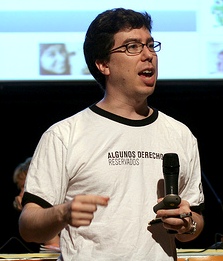
Jonathan L. Zittrain is an American professor of Internet law and the George Bemis Professor of International Law at Harvard Law School. He is also a professor at the Harvard Kennedy School, a professor of computer science at the Harvard School of Engineering and Applied Sciences, and co-founder and director of Harvard's Berkman Klein Center for Internet & Society. Previously, Zittrain was Professor of Internet Governance and Regulation at the Oxford Internet Institute of the University of Oxford and visiting professor at the New York University School of Law and Stanford Law School. He is the author of The Future of the Internet and How to Stop It as well as co-editor of the books, Access Denied, Access Controlled, and Access Contested.
A royalty payment is a payment made by one party to another that owns a particular asset, for the right to ongoing use of that asset. Royalties are typically agreed upon as a percentage of gross or net revenues derived from the use of an asset or a fixed price per unit sold of an item of such, but there are also other modes and metrics of compensation. A royalty interest is the right to collect a stream of future royalty payments.

Frank Shepard Fairey is an American contemporary artist, activist and founder of OBEY Clothing who emerged from the skateboarding scene. In 1989 he designed the "Andre the Giant Has a Posse" (...OBEY...) sticker campaign while attending the Rhode Island School of Design (RISD).

The Bluebook: A Uniform System of Citation is a style guide that prescribes the most widely used legal citation system in the United States. It is taught and used at a majority of U.S. law schools and is also used in a majority of federal courts. Legal publishers also use several "house" citation styles in their works. The Bluebook is compiled by the Harvard Law Review Association, the Columbia Law Review, the University of Pennsylvania Law Review, and the Yale Law Journal. Currently, it is in its 21st edition. Its name derives from the cover's color.
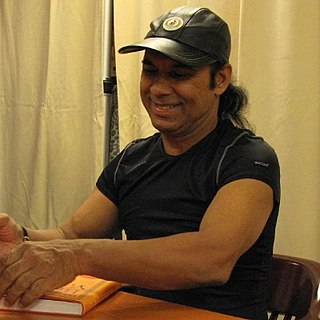
Bikram Choudhury is an Indian-American yoga guru, and the founder of Bikram Yoga, a form of hot yoga consisting of a fixed series of 26 postures practised in a hot environment of 40 °C (104 °F). The business became a success in the United States and then across the Western world, with a variety of celebrity pupils. His former wife Rajashree Choudhury assisted him in the yoga business.

The Berkman Klein Center for Internet & Society is a research center at Harvard University that focuses on the study of cyberspace. Founded at Harvard Law School, the center traditionally focused on internet-related legal issues. On May 15, 2008, the center was elevated to an interfaculty initiative of Harvard University as a whole. It is named after the Berkman family. On July 5, 2016, the center added "Klein" to its name following a gift of $15 million from Michael R. Klein.
Alvin Kenneth Hellerstein is a senior United States district judge of the United States District Court for the Southern District of New York who has presided over several high-profile cases, including the Harvey Weinstein trial.

Yochai Benkler is an Israeli-American author and the Berkman Professor of Entrepreneurial Legal Studies at Harvard Law School. He is also a faculty co-director of the Berkman Klein Center for Internet & Society at Harvard University. In academia he is best known for coining the term commons-based peer production and his widely cited 2006 book The Wealth of Networks.
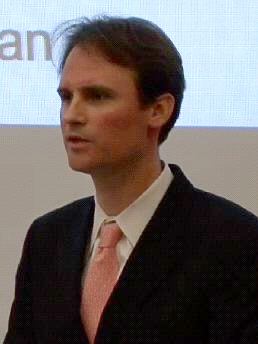
John Gorham Palfrey VII is an American educator, scholar, and law professor. He is an authority on the legal aspects of emerging media and an advocate for Internet freedom, including increased online transparency and accountability as well as child safety. In March 2019, he was named the president of the MacArthur Foundation effective September 1, 2019. Palfrey was the 15th Head of School at Phillips Academy in Andover, Massachusetts from 2012 to 2019. He has been an important figure at Harvard Law School and served as executive director of Harvard's Berkman Center for Internet & Society from 2002 to 2008.
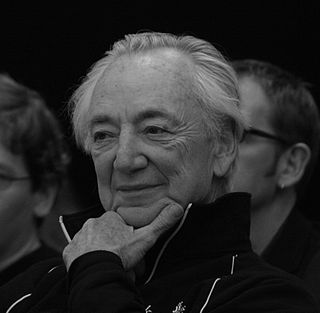
Charles Rothwell Nesson is the William F. Weld Professor of Law at Harvard Law School and the founder of the Berkman Center for Internet & Society and of the Global Poker Strategic Thinking Society. He is author of Evidence, with Murray and Green, and has participated in several cases before the U.S. Supreme Court, including the landmark case Daubert v. Merrell Dow Pharmaceuticals.
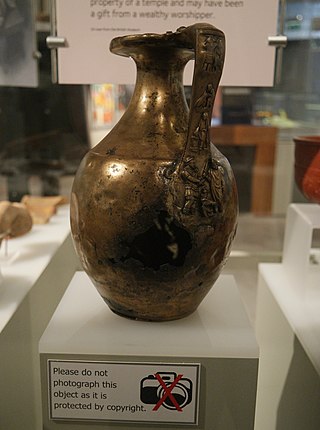
A copyfraud is a false copyright claim by an individual or institution with respect to content that is in the public domain. Such claims are unlawful, at least under US and Australian copyright law, because material that is not copyrighted is free for all to use, modify and reproduce. Copyfraud also includes overreaching claims by publishers, museums and others, as where a legitimate copyright owner knowingly, or with constructive knowledge, claims rights beyond what the law allows.
The copyright law of the United States grants monopoly protection for "original works of authorship". With the stated purpose to promote art and culture, copyright law assigns a set of exclusive rights to authors: to make and sell copies of their works, to create derivative works, and to perform or display their works publicly. These exclusive rights are subject to a time and generally expire 70 years after the author's death or 95 years after publication. In the United States, works published before January 1, 1928, are in the public domain.

Copyright infringement is the use of works protected by copyright without permission for a usage where such permission is required, thereby infringing certain exclusive rights granted to the copyright holder, such as the right to reproduce, distribute, display or perform the protected work, or to make derivative works. The copyright holder is typically the work's creator, or a publisher or other business to whom copyright has been assigned. Copyright holders routinely invoke legal and technological measures to prevent and penalize copyright infringement.
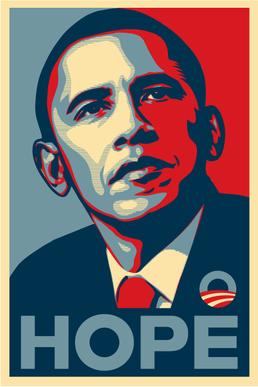
The Barack Obama "Hope" poster is an image of US president Barack Obama designed by American artist Shepard Fairey. The image was widely described as iconic and came to represent Obama's 2008 presidential campaign. It is a stylized stencil portrait of Obama in solid red, beige and blue, with the word "progress", "hope", or "change" below.

Justin Hughes is the William H. Hannon Professor of Law at Loyola Law School, Los Angeles, where he teaches courses in intellectual property law, international trade, and internet law. As a scholar he has emphasized philosophical and historical issues in intellectual property, focusing on copyright, trademarks, and geographical indications. He led United States delegations to international negotiations on copyright.
Bikram Choudhury made a series of claims that his yoga practice, Bikram Yoga, was under copyright and that it could not be taught or presented by anyone whom he had not authorized, starting in 2002. In 2011 Choudhury started a lawsuit against Yoga to the People, a competing yoga studio founded by a former student of Bikram's and with a location near one of the Bikram Yoga studios in New York. As a result of that lawsuit, the United States Copyright Office issued a clarification that yoga postures (asanas) could not be copyrighted in the way claimed by Bikram, and that Yoga to the People and others could continue to freely teach these exercises. In 2015, the Ninth Circuit Court of Appeals affirmed a lower court ruling that the Bikram Yoga Sequence was not copyrightable subject matter.
Katherine 'Kate' Irene Maynard Darling is an American-Swiss academic. She works on the legal and ethical implications of technology. As of 2019, she is a Research Specialist at the MIT Media Lab.













